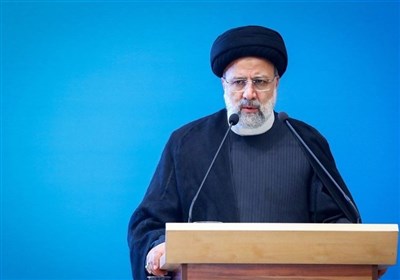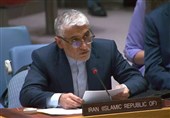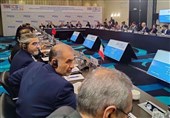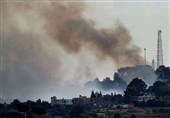UN to Continue Efforts for Peace in Palestine until Occupation Lifted: Official
TEHRAN (Tasnim) – The UN Special Rapporteur on situation of human rights in the Palestinian Territory said the international body would continue working for peace in the occupied territories until the occupation is lifted and Palestinians can exercise the right to self-determination.
“…the United Nations has a long-standing presence in Gaza through both a number of different agencies and also leading the coordination for the peace process in the occupied territories and will retain that position and continue that work until the occupation is finally lifted and the Palestinians have been able to realize the right to self-determination,” Michael Lynk told Tasnim.
Michael Lynk is Associate Professor at the Faculty of Law, Western University, in London, Ontario. He joined the Faculty in 1999, and has taught courses in labour, human rights, disability, constitutional and administrative law. He served as Associate Dean of the Faculty between 2008-11.
Following is a rough transcription of the interview.
Tasnim: Around two million Palestinians in Gaza remain locked in and are prevented from having free access to the remainder of Palestine and the outside world. The blockade has also undermined the living conditions in the coastal enclave and fragmented its economic and social fabric. What’s your take on this?
Lynk: Gaza is one of the most important humanitarian issues in the world today. The blockade imposed by Israel for the last eleven years means that water in the Gaza Strip, all 97 percent of the drinking water in the Gaza Strip, is condemned for being undrinkable because of sewage and seawater in the coastal aquifer.
There is now around 10 to 12 hours of pump a day in Gaza thanks to Qatar and its donation of money for six months. Whether that would last, we will have to see.
In September, the World Bank said that the economy in Gaza was in free fall. You actually could describe the entire situation of Gaza in free fall. 53 percent of Gazans are unemployed that is one of the highest rates of unemployment in the world. Over 70 percent of Gazans under the age of 29 are unemployed. Gaza has destroyed infrastructure. It has no money coming in to be able to lubricate the economy and it is almost entirely dependent upon humanitarian assistance from outside.
So a number of UN resolutions, including statements by the most recent two secretary generals, have said that Gaza is under collective punishment because of the blockade by Israel and this is contrary to international law and it is certainly contrary to international humanitarian law. Gaza remains an occupied territory because Israel retains control over its air, its sea, and its land borders and collective punishment is a violation of the Fourth Geneva Convention.
Israel is not the only entity that is involved in maintaining this blockade. Egypt maintains very tight control over Rafah crossing and that is only open about 10 percent of the year. There are issues with respect to how both the Palestinian Authority and Hamas are treating the issue of Gaza as well. But the primary impetus with respect to the misery the Gazans are undergoing right now rests with Israel. Unless and until the blockade is lifted and Gaza can begin to interact with the world again, both through its economy and through its people, it will remain in trouble. Gaza stands no hope for any kind of economic and social recovery.
Tasnim: My second question is about the relocation of US embassy to Jerusalem (al-Quds). Many experts argue that the move by the US could falter the Israeli-Palestinian “peace process”. What do you think?
Lynk: Well, first of all, the United Nations Security Council had stated some years ago after it condemned the unilateral annexation by Israel of East Jerusalem that called upon all countries that have embassies in Jerusalem, recognizing Jerusalem as Israel’s capital for the moment, should relocate their embassies to Tel Aviv…for many years that was the unanimous policy and practice of the international community. So at the point of time when the United States announced its relocation of its embassy to Jerusalem, no country in the world had an embassy there. So this is both in breach of the consensus of the international community through Security Council resolutions but also is a setback to the peace process. Jerusalem is meant to be one of the issues to be negotiated between the parties based on international law. If certain countries like the United States is putting an embassy in west Jerusalem without recognizing the vowed claim that Palestinians have to (have) a capital in east Jerusalem, then that stymies any peace process. It puts countries who do this on one side of the negotiations and weakens the ability of the parties to be able to negotiate a final and just solution to Jerusalem and the peace in the Middle East.
Tasnim: You are aware of US President Donald Trump’s “deal of century". What are your thoughts on this?
Lynk: First of all, the American peace plan has not been released, so we have difficulty in being able to judge what is going to be able to say and any real comment on that will have to wait until we actually see it on paper. It has not been announced and delayed for a significant period of time. What we do know is that the Americans, certainly in the statements made by President Trump and those Middle East advisers that provide him with background and direction on Middle East peace, have indicated that Jerusalem appears to be off the table…refugees and the right to return seems to be taken off the table as well. These are two the most important issues that were on the negotiating table between Israel and the Palestinians for negotiations. So one hopes but perhaps not with a lot of optimism, that the peace plan will lead to a final settlement. One is extremely skeptical of that possibility given recent American actions around some of those important issues… diplomats around the world are on the one hand looking forward to seeing it, and on the other hand, informally, they don’t have high expectation for that chance that will realize a final and durable peace plan.
Tasnim: Please let us know more about the latest measures taken by the UN to stop the bloodshed in the Gaza Strip.
Lynk: There have been obviously intense negotiations that the United Nations has been involved in as a mediator to prevent any escalation of the fighting that occurred several weeks ago. The United Nations is taking an active role in trying to ensure that some kind of stability remains in Gaza so that all essential preconditions for getting Gaza back on its feet are going to occur. It is a good thing. And I am sure the United Nations realizes that Gaza will not get back on its feet until the blockade is lifted, until the economy can start working again, until power, sewage, electricity, water and all of these essential infrastructure aspects are part of the fabric of Gaza and Gaza can operate like any other modern normal society. So the United Nations has a long-standing presence in Gaza through both a number of different agencies and also leading the coordination for the peace process in the occupied territories and will retain that position and continue that work until the occupation is finally lifted and the Palestinians have been able to realize the right to self-determination.






